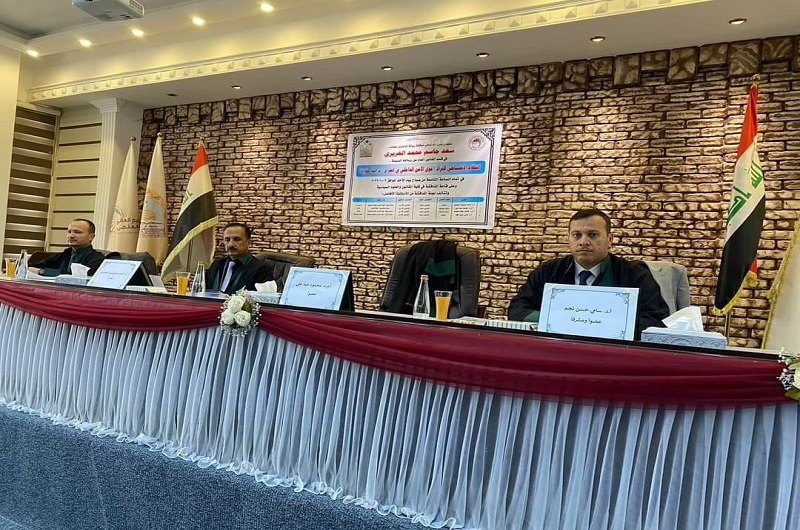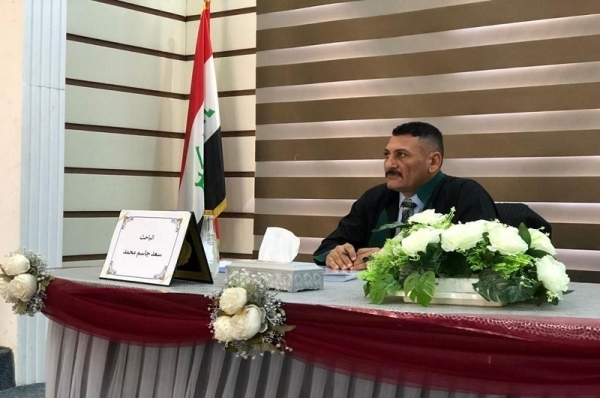The College of Law and Political Science discussed the master's thesis entitled "The Disciplinary System of the Internal Security Forces in Iraq / A Comparative Study" by the student Saad Jassim Muhammad and the supervision of a. Dr.. Sami Hassan Najm. The study aimed to clarify the nature of the disciplinary system for members of the Internal Security Forces, the concept of violations and penalties within the scope of the Internal Security Forces, and the authority competent to impose disciplinary punishment and the procedures for imposing and guaranteeing it within the scope of the Internal Security Forces. He belongs to the ISF facility, and defined him as a member of the Internal Security Forces, and this is a formal defect in the term, as it gives the impression to the reader that all those who belong are men, while the formations of the Internal Security Forces at the present time include many female elements, and that when he mentioned The Iraqi legislator, the term internal security forces in the amended Service and Retirement Law No. 18 of 2011, referred to the formations of the internal security forces and not to their members, bearing in mind that the above-mentioned law is for members of the internal security forces, while their formations are regulated by the Ministry of Interior Law No. 20 of 2016. The researcher recommended the owners of The decision in the Iraqi Ministry of Interior not to include any orders, instructions, or regulations that include withholding the annual bonus from individuals as an effect of disciplinary punishment, as long as the legislator did not provide for this in the Incorporating the laws of the internal security forces, emphasizing the Iraqi legislator by mentioning the type of disciplinary punishment that delays the promotion of members of the internal security forces, and calling on the Iraqi legislator to follow what the Egyptian and UAE legislators have followed and adopting the system of quasi-judicial authority in inflicting disciplinary punishment, through the formation of committees Or disciplinary councils that have an effective opinion in issuing a decision to impose disciplinary punishment with the presidential authority represented by the seizure order, because this provides more guarantees for members of the internal security forces.
Thursday, 06 October 2022 05:49
The University of Kirkuk discusses the disciplinary system for members of the Internal Security Forces in Iraq
Website Division-2
Published in
Scientific Activities
Latest from Website Division-2
- A master's thesis at the University of Kirkuk discusses the effect of some nano fertilizers and tryptophan on the saffron plant.
- After achieving the championship cup and advanced positions, the university president honors the participating teams in the Iraqi university championships.
- The University of Kirkuk holds a scientific symposium on sustainable energy and the environment.
- The College of Arts hosts an international scientific symposium on the dangers of drugs and how students might help fight them in educational institutions.
- The University of Kirkuk holds a workshop on drugs and their positive effects on society.

